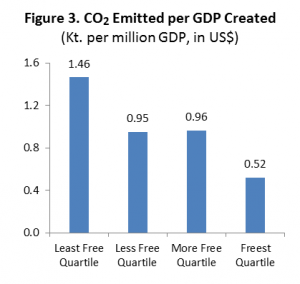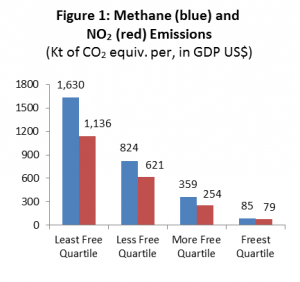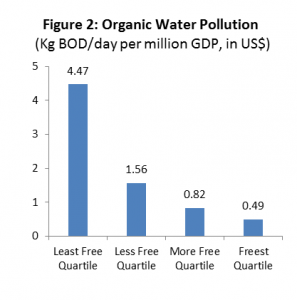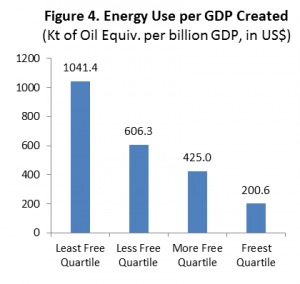Profiling Environmentalism (Part 3)
In “Profiling Environmentalism,” Tanner Davis wrote in this blog that we should all support environmentalists that he labeled the Bright Greens: optimistic folks who exhibit a strong faith that technological innovations and entrepreneurship will help create prosperity with an ever cleaner ecological footprint.
In “Profiling Environmentalism 2,” I followed that these “Brights” understand how economic development is necessary for creating ecological innovations in technology. However, any virtuous cycles between economic progress and ecological innovations requires: 1) that demand for environmental quality increases with prosperity, and 2) that institutions in society must reward entrepreneurial activity that makes environmental quality effective and affordable.
I also noted that Bruce Yandle, et. al. reviewed the sizable literature relating a nation’s prosperity to its environmental quality. They state that while such a link has yet to be proven empirically, studies failed to control for how a nation’s political and economic institutions may affect the development of innovations that promote “green” productivity.
Could enviro-entrepreneurship and innovation be either encouraged or discouraged by a nation’s economic institutions? Would protecting private property rights, upholding the rule of law, and maintaining low levels of government intrusion by excessive regulations and taxation influence the pathway that a nation chooses to pursue its prosperity?
Fortunately, measures of these institutions are collected over 150 countries in the world, and then are aggregated into a country-specific metric called the Economic Freedom of the World (EFW) index. The EFW index, created by Jim Gwartney and Bob Lawson, is published annually by the Fraser Institute.
The freest countries in 2014 include Hong Kong, Singapore, New Zealand, and Switzerland. While Canada is #8 and Australia is #10, the U.S. is only #17. The least economically free countries include Venezuela, Myanmar, Republic of Congo and Zimbabwe.
When a nation’s economy works to feed, clothe, shelter and educate its citizens, this economic activity will impact the environment through air and water pollution, greenhouse gas emissions and depletion of its supplies of natural resources. We can track these measures for each country using the World Bank’s “World Development Indicators” dataset. But the question is: what economic institutions promote the “greenest” pursuit of prosperity and leave the smallest ecological footprint possible?
Figure 1 and Figure 2 represent data from all the nations for which EFW index values and the ecological variables were available. These countries are sorted into quartiles according to their EFW index value, from the least free to the freest countries. Clearly, the level of air and water pollution that is emitted per dollar of GDP produced is LOWER in those nations that pursue free enterprise prosperity with greater economic freedoms.
Likewise, Figure 3 shows that economically freer countries emit FEWER greenhouse gasses per dollar of GDP produced. Further, energy consumed by the vast majority of countries is produced by burning non-renewable resources like coal, natural gas and oil. This means those countries with a lower consumption rate per dollar GDP are practicing a more sustainable growth path towards prosperity. Figure 4 shows that the energy consumed to make a dollar of GDP is LOWER in nations with more economic freedom.

The smallest ecological impact per dollar of economic activity does not appear to arise from the planned economies of socialism or communism. Greater environmental quality and sustainable growth paths to prosperity appear to be more prevalent in countries where the invisible hand is free to “guide” individuals to produce and exchange their products and services in a decentralized market system — established and preserved with greater economic freedoms.
Let’s all be “Bright” about creating our future.


